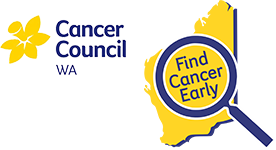Early detection is key.
Guys should take the time to get to the doctor.
This article was written by Ashleigh Fielding and was published in the Great Southern Weekender on 27 September 2018.
A ROUTINE trip to the doctor eight years ago helped Albany man Gary Hastie detect his prostate cancer before it became aggressive, and he is now urging other men to follow suit and prioritise their health this Prostate Cancer Awareness Month.
Mr Hastie was diagnosed with low grade prostate cancer in 2010 when he was 70, after noticing his prostate was enlarged.
He was monitored closely by doctors over the years and later received an aggressive cancer diagnosis in 2017.
Due to the early detection of his symptoms, Mr Hastie was able to seek immediate treatment and is now undergoing radiation treatment in Perth.
Mr Hastie encouraged other men of all ages to put their health first.
“Guys should take the time to get to the doctor,” he said.
“Don’t keep putting it off.
“It’s not something to be afraid of.
“Technology and medicine has come a long way, and there’s lots of support out there to help you get through it.”
Cancer Council WA regional education officer Bruce Beamish said prostate cancer is the most common cancer affecting men in WA, with nearly 2000 men diagnosed with the disease in 2014.
He said men from regional WA were particularly likely to avoid going to the doctor when they were experiencing unusual symptoms, as many patients often believed the changes were a normal part of aging.
“It’s easy to make excuses for symptoms and not tell a doctor, clinic nurse or health worker about them,” Mr Beamish said.
“But if you don’t do something, you could be playing with your life.
“The chances of getting prostate cancer by the time you’re 75 is one in eight.
“This means for every eight people, one person will get prostate cancer.”
Mr Beamish said common symptoms of prostate cancer include waking frequently at night to pee, a sudden or urgent need to pee, incontinence, unexplained weight loss, needing to pee more often, a slow fl ow or pain, or dribbling at the end of peeing.
He said early detection is key to successfully treating prostate cancer.
“Don’t just put up with the symptoms – the day-to-day impact they can have on your day-to-day life far outweighs any potential embarrassment or time commitment required to see someone about it,” Mr Beamish said.
“Thousands of West Australians are successfully treated for cancer every year.
“Treatment is most effective when cancer is found at an early stage, so finding cancer early can make a real difference.”
Mr Hastie is turning 78 next week and said he is doing well through his treatment, having experienced no side effects from his radiation to date.
He is staying at Cancer Council WA’s Milroy Lodge in Perth with his wife Francis while he undergoes radiation treatment over a series of weeks.
